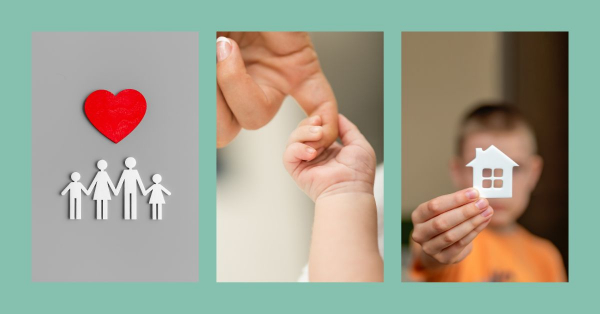What to Expect on the Journey to Becoming a Foster Parent
So, you want to be a foster parent.
Welcome! Buckle up, buttercup, because if you should follow through with this, you are in for a wild ride. It is nothing like you imagine. It is equal parts much worse and much better than you think.
The first step in this journey is finding the agency you want to work with. There are hundreds. Depending on your state, you can either work directly with Child Protective Services (CPS) or a private agency.
If you’re going to work directly with CPS, you might expect:
- Foster Care Training
- Home Walk-Thru
- Home Study
- Paperwork Approval
- Placement
- Reunification efforts
- Court Dates
- Caseworker Visits
A home study is a comprehensive examination of your physical home, your psychological and emotional history, your family relationships, your support system, and your overall capacity to be able to care for a child. I was worried about this part, but it ended up being one of the easiest steps until it was all said and done because the caseworker and I knew each other pretty well by this point.
If you work with an agency you may have a second caseworker working with you and your family. They will perform monthly inspections, keep you on top of your paperwork, and sometimes have events for your family to attend such as lake days or Christmas parties.
If you want to be a foster parent, there is a good chance you love kids and your goal is to help them through what will arguably be the hardest experience of their life. If everyone is lucky and things work out the way they are meant to, the child will come out healthier and safer than before. It doesn’t always work that way. Statistically, it is generally much more complicated than that.
Here are some adults you might find in your living room at any given time during this process:
CASA- Court Appointed Special Advocate
Ideally, every kid would get one of these. They are specially trained volunteers who help protect the interest of the child during the trial. Depending on their level of involvement, you may see this person anywhere from once a week to once every month or two. Our kids’ CASA was a giant among men and would routinely take our big kids out for baseball games, zoo trips, days at the park, ice cream, and other fun things. He’d provide cases of diapers for the baby. He gave them gifts abundantly and cared deeply about their well-being.
CASAs These are volunteers so experiences may vary.
Guardian Ad-Litem
This is a lawyer who is representing the child or children. Some cases have more than one if the children have different mothers or fathers than their siblings. You may never see this person, or they may be a regular in your home.
Agency Case Worker
This only applies if you work with an agency. This case worker will generally be the one you report to and give your monthly paperwork (medical logs, behavioral intervention, etc.) They will check to make sure your home meets regulation standards.
CPS Case Worker
You may not get one of these if your state is one that only deals with private agencies. They report directly to the state are in charge of court appearances and make sure the kids are taken care of. They’ll arrange things like parent visitation and let you know if the judge wants to see the kids.
Visitation Supervisor
If your foster children have parent visitation, this is the person who watches and monitors those interactions. Some areas do not offer this and you will be responsible for attending the visitation and making notes.
So, if you think you can handle hours and hours of training, emotional whiplash, and getting “too attached” to kids who may or may not leave at any minute, foster care might be a good fit for you.
Truly, being a foster parent was one of the best things I’ve ever had the privilege to be, and maybe someday when the kids we adopted are grown, we’ll consider it again. You should at least attend that first information meeting and ask some questions. You’d be surprised just what you’re able to do when you have the right support.







